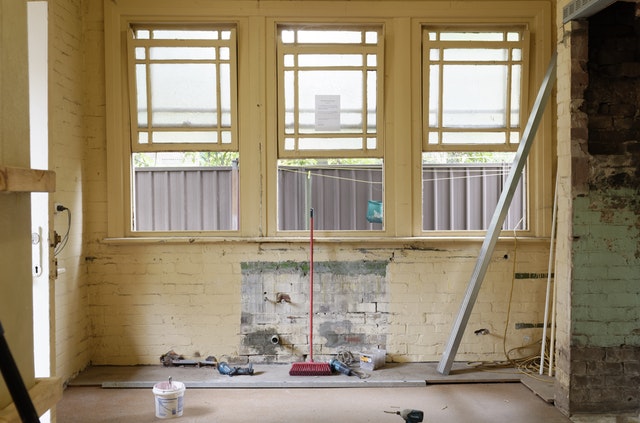
Hunting for a house is stressful enough even if you are moving to another part of town. However, when you are searching for a house from afar, it can make the task of finding the right home for your needs seem almost impossible.
Fortunately, in today’s high-tech world, you have an array of tools available right at your fingertips that can make it easy to find the perfect house for your needs. So, even if you are looking for a home thousands of miles away, you can do so quickly and with minimal fuss.
Partner With The Right Real Estate Agent
The first thing that you should do when looking for a house in an area that you are unfamiliar with is to find a local agent. Find someone who has the expertise of the local market and buying process. The information that you garner from choosing a local agent can be invaluable. They know the market intimately.
Additionally, a local agent knows the community as they likely live there as well. They know which schools and neighborhoods are best. They can get to know what you are looking for in an area and help you find the right community for your particular needs. They might also have information on local gems that are not yet showing up on online listings.
Do Your Research
After you find a home or two that you are interested in, thoroughly research the area. Search for information about local schools, churches, shopping centers and more. You want to make sure that the neighborhood will meet your needs. Research crime rates in the area.
Also, determine how long your commute from work to home will be each day. Even if you don’t have children, research local school rankings. The rating and quality of local schools is paramount when it comes to the resale value of your home.
Visit In Person
There is just no amount of research that can substitute for an in-person visit to a potential home. If you are planning to hunt for a house from a distance, be prepared for the travel. Make sure that you have the money and time to visit. It is best to prepare for longer house-hunting trips so that you can take your time when walking through each showing.
Also, make it a point to pay a visit to local restaurants, parks, and businesses to get a feel for the local community.
Your trusted real estate agent will be your best asset when searching for properties at a distance. Be sure to provide your must-have list and start searching for your new home today.
 Last week’s economic readings included reports on sales of new and pre-owned homes, mortgage rates and first-time jobless claims.
Last week’s economic readings included reports on sales of new and pre-owned homes, mortgage rates and first-time jobless claims. If you are a home owner trying to reduce your carbon footprint, it’s time to make some changes to your property. The more you can do to reduce energy costs, increase efficiency and reduce waste, the less impact you and your home will have on the earth.
If you are a home owner trying to reduce your carbon footprint, it’s time to make some changes to your property. The more you can do to reduce energy costs, increase efficiency and reduce waste, the less impact you and your home will have on the earth. Do you think that you don’t have the space for a home office? Maybe you are under the impression that you need an extra bedroom or spare room for a workspace.
Do you think that you don’t have the space for a home office? Maybe you are under the impression that you need an extra bedroom or spare room for a workspace.
 Popular TV shows like Fixer Upper and Property Brothers have brought the charms of owning a fixer upper to light. A fixer-upper can be a great option if you are prepared for the experience of owning a house that needs work and time.
Popular TV shows like Fixer Upper and Property Brothers have brought the charms of owning a fixer upper to light. A fixer-upper can be a great option if you are prepared for the experience of owning a house that needs work and time. Last week’s scheduled economic releases included readings from the National Association of Home Builders and Commerce Department readings on housing starts and building permits issued. Weekly readings on mortgage rates and new jobless claims were also released
Last week’s scheduled economic releases included readings from the National Association of Home Builders and Commerce Department readings on housing starts and building permits issued. Weekly readings on mortgage rates and new jobless claims were also released Many homeowners don’t take advantage of simple measures to reduce energy bills. A survey by SaveOnEnergy found that nearly 50 percent of homeowners have not switched their regular light bulbs to energy saving bulbs. This simple measure can save more than $180 a year on electric bills.
Many homeowners don’t take advantage of simple measures to reduce energy bills. A survey by SaveOnEnergy found that nearly 50 percent of homeowners have not switched their regular light bulbs to energy saving bulbs. This simple measure can save more than $180 a year on electric bills. Whether you are a homeowner looking to get the maximum return on investment, a buyer interested in fair market value or an industry insider grappling with the moving parts of the real estate industry, these are some trends and predictions you should know about.
Whether you are a homeowner looking to get the maximum return on investment, a buyer interested in fair market value or an industry insider grappling with the moving parts of the real estate industry, these are some trends and predictions you should know about. Home improvements are key investments when it comes to quality of life and property value. While decks, solar panels and smart technologies are trendy options, installing a home generator may be even more valuable. That’s because backup generators not only improve market value, they also protect you and your home during severe weather incidents.
Home improvements are key investments when it comes to quality of life and property value. While decks, solar panels and smart technologies are trendy options, installing a home generator may be even more valuable. That’s because backup generators not only improve market value, they also protect you and your home during severe weather incidents.